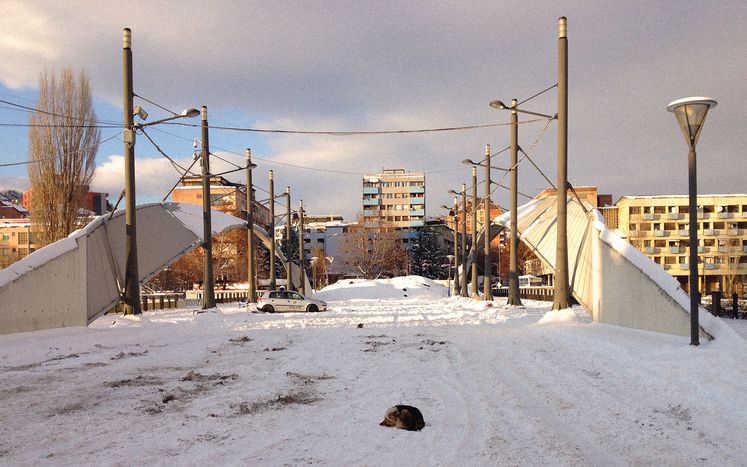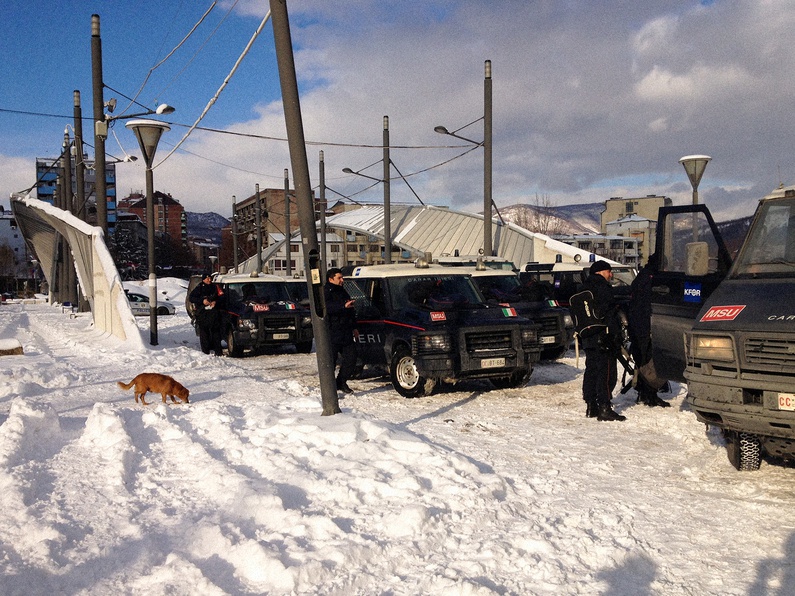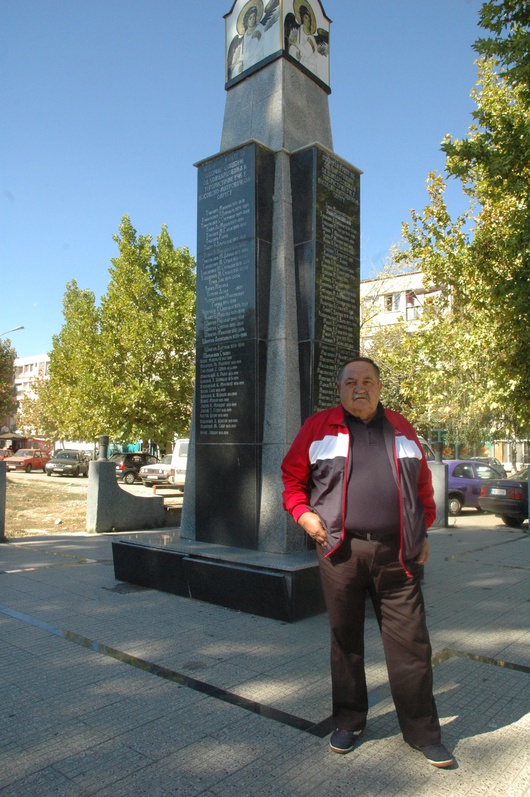
An Exquisite Corpse in the Land of Blackbirds: Chapter Eight
Published on
Translation by:
Ida Sophie WinterIn the early 2000s, was Kosovo the site of organ trafficking, carried out by guerillas on Serbian prisoners? The answer may be found at an old front line in northern Kosovo, where the president of the Serbian Association of Families of Missing Persons gave us an interview. Standing between two tanks.
VIII – On the Mitrovica bridge
Fifteen years after the conflict, thousands of people are still reported missing. According to the International Committee of the Red Cross (CICR), the official number is 1799. No less than 22 official associations exist to sustain the memory of these missing persons. There are groups for families of missing Albanians and those of missing Serbians. The president of the Serbian Association of Families of Missing Persons, Milorad Trifunovic, agreed to meet me in Mitrovica, a city situated in the north of the country.
The region, mostly populated by Serbs, escapes from the control of authorities in Pristina and remains a theatre of sporadic violence. Nestled in verdant hills, the former urban enclave of Mitrovica always crystallises tensions between Serbian and Kosovar communities. Official buildings are regularly bombed, and assassinations and pogroms also happen. The last municipal elections, in December 2013, took place under high surveillance and had to be rescheduled.
River Ibar, the old Mitrovica front line of the war in Kosovo, separates Albanian neighbourhoods in the south from the Serbian ones in the north. On the bridge to Mitrovica, Fadil, my Albanian fixer, stops in his tracks. “I never go farther.” With his finger, he apprehensively indicates the opposite bank: a barricade and an improvised encampment supporting small Serbian flags are guarded by a scruffy and visibly drunk paramilitary. Fadil refuses to continue. Other than businessmen, international employees and some curious individuals, most inhabitants almost never travel over the Austerlitz Bridge to the opposite bank unless it is necessary. After ten minutes of back-and-forth, Fadil agrees to translate the interview in the middle of the bridge. Not far from the KFOR tank, slick Italian carabinieris survey the zone.
Mustachioed and dressed in a tracksuit and gold bracelet, Milorad Trifunovic arrives shortly after, trotting toward us in slippers. Engaged in a sonorous monologue, interrupted only by the ringing of his cellphone, Trifunovic does not stutter in recalling the war; “his war.” This former miner, who worked in the region’s largest charcoal mine — the conglomerate Trepča — then a restaurant, money, a family, connections and “the blossoms of a political career” summarise his life in five minutes.
 He takes us back to June 1999. “NATO bombings in Kosovo terribly aggravated the situation in the region and provoked a true reckoning,” he confided. Many abductions followed the installation of the international protectorate in June 1999. “Almost 25,000 Serbians were hunted, 2,000 were killed, 1,000 vanished. Miloševic was not the only one to have truly conducted an ethnic cleansing,” Trifunovic resumed, sighing. His house, situated in the general KFOR district at the time was “burned by the Albanians under the watch of the international community, which didn’t lift a finger.” His brother disappeared at age 35, with nine other colleagues. “We did not know what to expect. And even if it’s been fifteen years, we are holding on to the hope that he is still alive somewhere, despite everything.”
He takes us back to June 1999. “NATO bombings in Kosovo terribly aggravated the situation in the region and provoked a true reckoning,” he confided. Many abductions followed the installation of the international protectorate in June 1999. “Almost 25,000 Serbians were hunted, 2,000 were killed, 1,000 vanished. Miloševic was not the only one to have truly conducted an ethnic cleansing,” Trifunovic resumed, sighing. His house, situated in the general KFOR district at the time was “burned by the Albanians under the watch of the international community, which didn’t lift a finger.” His brother disappeared at age 35, with nine other colleagues. “We did not know what to expect. And even if it’s been fifteen years, we are holding on to the hope that he is still alive somewhere, despite everything.”
 For those who never obtained news of their relatives and continue to live immobilised by their memories, a veritable “extortion of the missing is developing in the region. Bandits use families’ tragedies to make money.” Trifunovic knows many people who, in the last years, have been made to believe that their sons, brothers and fathers were alive and they would learn their whereabouts in exchange for money. “As soon as [money] is sent, these Mafioso apparently disappear into the ether.”
For those who never obtained news of their relatives and continue to live immobilised by their memories, a veritable “extortion of the missing is developing in the region. Bandits use families’ tragedies to make money.” Trifunovic knows many people who, in the last years, have been made to believe that their sons, brothers and fathers were alive and they would learn their whereabouts in exchange for money. “As soon as [money] is sent, these Mafioso apparently disappear into the ether.”
It was toward the end of 2000 that Trifunovic heard about organ trafficking in the region. First rumors, then suspicions, born from a sordid reality. “During the conflict,” remembers Trifunovic, “we often fell upon combatants’ cadavers, usually old, on routes. But young bodies, in good health, we didn’t ever find those.”
Trifunovic affirms that he knew one of the witnesses mentioned in the first UNMIK report. It is an Albanian neighbour, “a former UÇK (Kosovo Liberation Army — Ed.) chauffeur.” When I ask to meet him, Trifunovic laughs at me. He collects himself and, with a threatening air, asks, “You want him to kill me? Or for him to be executed? It has been a long time since we confided in strangers. Here, the whole world manipulates the truth. Serbians rot in prison and Albanians guard their impunity, protected by the Americans and Western powers.”
YOU JUST READ THE EIGHTH CHAPTER OF OUR INVESTIGATION INTO ORGAN TRAFFICKING IN KOSOVO. DISCOVER THE NEXT CHAPTER OF THIS GREAT THRILLER EVERY TUESDAY THROUGHOUT THE AUTUMN HERE AT YOUR ONLY EUROPEAN MAGAZINE.

Translated from Cadavre exquis au pays des merles noirs : chapitre 8



